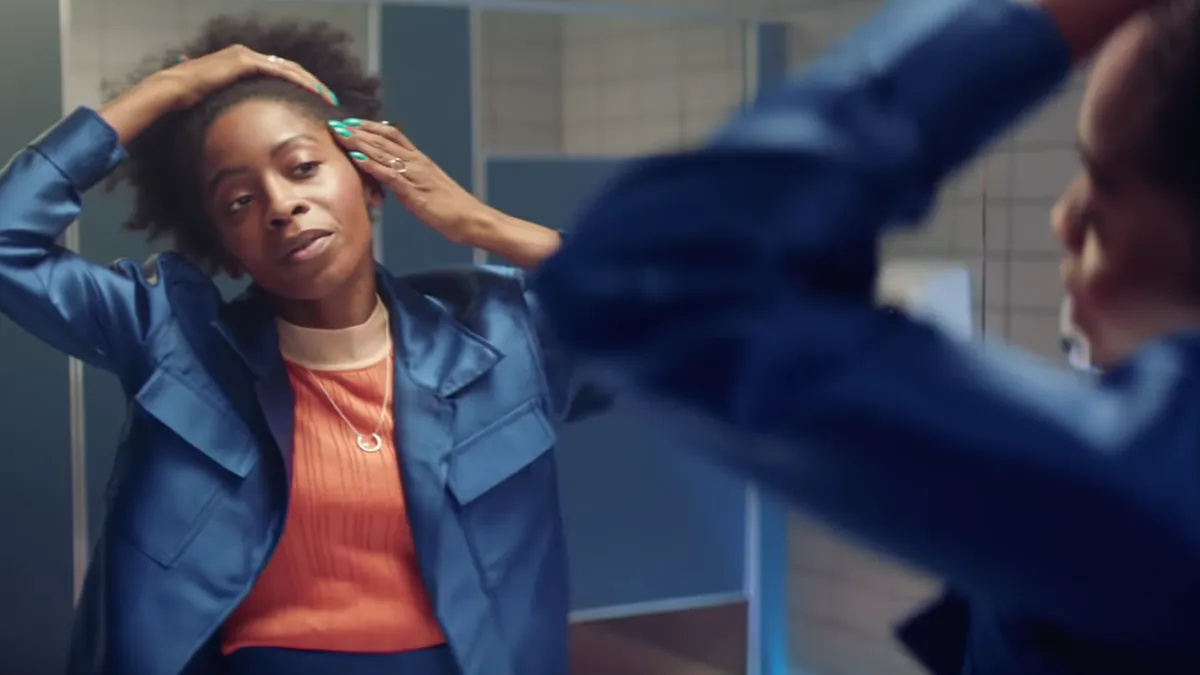Dive Brief:
- Procter & Gamble women's deodorant brand Secret debuted "#IdRatherGetPaid," a stylized music video focusing on the idea that the gender pay gap persists despite women making progress in other areas, according to a news release.
- The video features actress Rinny Perkins leading a song and dance number about the need for equal pay and ends with the tagline, "Equal work. Equal sweat. Equal pay. Pay women what they're worth." The video includes cameos by actress and activist Sophia Bush; actress Samira Wiley; journalist, activist and tastemaker Catt Sadler; soccer star Abby Wambach and Swin Cash, an Olympic gold medalist and WNBA champion. Claire Wasserman and Ashley Louise, co-founders of the organization Ladies Get Paid, also appear in the Secret film.
- As part of the effort, Secret partnered Ladies Get Paid and women's co-working space The Wing to provide resources to women pushing for pay equality. Women can visit LadiesGetPaid.com to access a toolkit from Secret that includes tips for salary negotiation and ways organizations can advance change. Through December, Secret and Ladies Get Paid are hosting workshops at The Wing locations nationwide with experts sharing tips to help women navigate the current unequal pay climate and advocate for progress.
Dive Insight:
P&G's Secret brand is using an energetic music video and appearances by celebrities and activists to raise awareness and inspire conversations about the gender pay gap. The approach appears to be resonating on some fronts: The YouTube post has racked up nearly 1.5 million views at press time, a day after launch, though it's also drawn some negative commentary and dislikes from those opposed to the idea.
The campaign, however, is informed by third-party research. On average, U.S. women are paid 20% less than men and women of color fare worse, according to findings by the American Association of University Women and Institute for Women's Policy Research cited by Secret. Black women earn 38% less and Latina women earn 46% less. The pay gap results in $513 billion in lost wages collectively each year for women, the groups found.
Despite the risk of backlash, brands that show their support for important social and political issues are winning over more consumers. Nearly two-thirds (64%) of surveyed global consumers reported that they purchase from or boycott a brand based on its stances on such subjects, according to the 2018 Edelman Earned Brand study. Edelman also revealed that more than half of respondents believe it's easier to get brands to address social issues than governments. Secret working with groups like Ladies Get Paid and The Wing show the marketer tapping into partners who can potentially provide more concrete resources for women that step beyond marketing messaging alone.
Secret isn't alone in more directly tackling the financial inequality that women often experience. Burger King ran a "Chick Fries" stunt in July, where a version of its usual Chicken Fries came in a pink box targeted at women that cost $3.09 versus the regular $1.69. The effort illustrated the "pink tax," which refers to products marketed to women that usually cost more than those marketed to men or general consumers. The fast-food brand released a video capturing the angry reactions of women being served the marked-up menu offering. Like Secret's push, the video drew a fair amount of controversy and negativity in the comments.
The new Secret campaign is part of parent company P&G's broader efforts to advance gender equality in ad campaigns and support women in creative roles. The CPG company has pledged to increase the number of female directors for its commercials from one in 10 to at least 50%, for example. Secret tapped female direct Raine Allen-Miller for "#IdRatherGetPaid."














